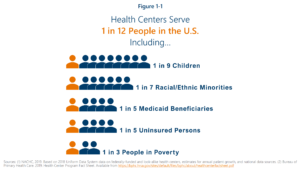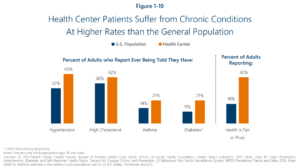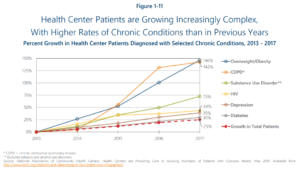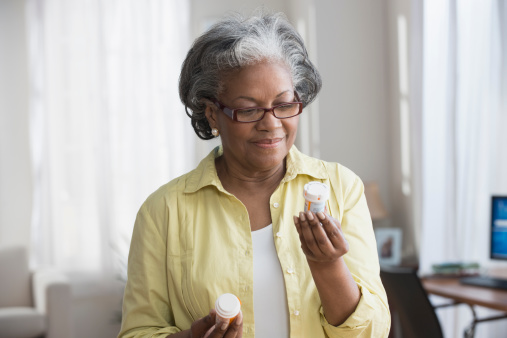 The National Association of Community Health Centers (NACHC) released its 2020 chartbook, Community Health Center Chartbook. The chartbook provides an overview of the importance and impact community health centers have within the communities they serve.
The National Association of Community Health Centers (NACHC) released its 2020 chartbook, Community Health Center Chartbook. The chartbook provides an overview of the importance and impact community health centers have within the communities they serve.
Together, health centers serve 1 in 12 people in the United States. These stats include:
- 1 in 9 children
- 1 in 7 racial/ethnic minorities
- 1 in 5 Medicaid beneficiaries
- 1 in 5 uninsured persons
- 1 in 3 people in poverty
Who are the people included in those numbers?
- 385,222 are veterans
- 1,413,256 are experiencing homelessness
- 4,415,160 live in public housing
- 6,706,410 are served in a language other than English
- 995,232 are agricultural workers
- 819,177 are school based
 Additionally, community health center patients suffer from chronic conditions at higher rates than the general population. The most common chronic illness is hypertension at 45 percent of all patients. When comparing health centers and the country’s population, 42 percent – compared to the US’ population at 18 percent – have either fair or poor health.
Additionally, community health center patients suffer from chronic conditions at higher rates than the general population. The most common chronic illness is hypertension at 45 percent of all patients. When comparing health centers and the country’s population, 42 percent – compared to the US’ population at 18 percent – have either fair or poor health.
 From 2013 to 2017, the percentage of patients with chronic diseases has increased by 25 percent. Patients with the following diseases have increased by:
From 2013 to 2017, the percentage of patients with chronic diseases has increased by 25 percent. Patients with the following diseases have increased by:
- Overweight/obesity – 146 percent
- Chronic Obstructive Pulmonary Disease (COPD) – 143 percent
- Substance use disorders (not including tobacco and alcohol use) – 73 percent
- HIV – 44 percent
- Depression – 39 percent
Patients with chronic illnesses must be able to receive medication that allows them to manage their disease. How are you treating, educating and protecting these patients? Where and how are they getting their prescriptions filled? These are the patients that can transform your facility to be financially independent through 340B pharmacy. As COVID-19 continues to cause providers to treat via telehealth, are your high risk patients able to get their prescriptions delivered to their home?






